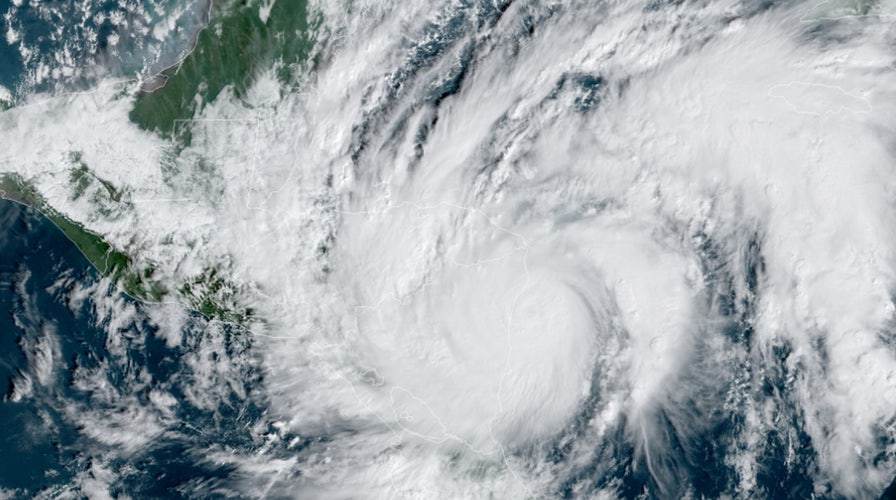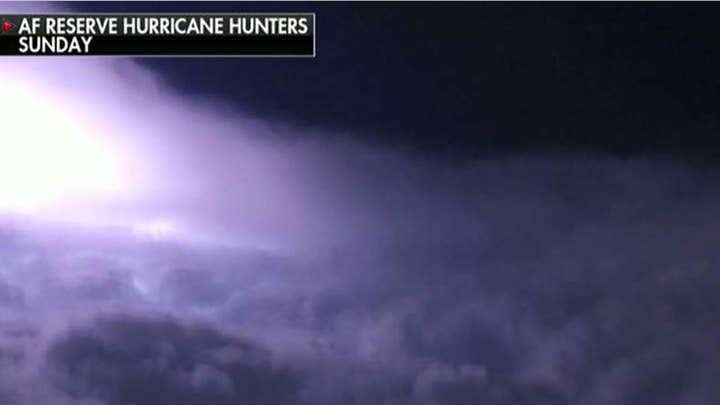Small businesses ravaged by natural disasters, coronavirus pandemic
Flora-Bama Lounge owner Cameron Price and McKenzie River Mountain Resort owner Chris Lavoie on how the coronavirus pandemic and natural disasters impacted their businesses.
The U.S. is likely to be hit with another "above-normal" Atlantic hurricane season in 2021.
At a virtual briefing on Thursday, National Oceanic and Atmospheric Administration (NOAA) forecasters predicted a likelihood of 13 to 20 total named storms.
In addition, the agency said six to 10 of those named storms were likely to become hurricanes, with wind speeds of 74 mph or higher.
NATIONAL WEATHER FORECAST: HURRICANE SEASON EXPECTED TO HAVE ABOVE-AVERAGE ACTIVITY
Three to five of those named storms are likely to become major hurricanes, which are defined as Category 3, 4, or 5 with winds of 111 mph or higher.
In addition, NOAA said there was just a 10% chance the season would be "below-normal," 30% it would be "near-normal" and 60% it would be "above-normal."
In a news release, NOAA said that it had updated the statistics used to determine hurricane seasons' categorizations relative to the most current climate record.
Based on the update, an average hurricane season would produce 14 named storms, including seven hurricanes and three major hurricanes.
The NOAA release also noted that El Nino Southern Oscillation (ENSO) conditions are currently in the neutral phase, with the possibility of the return of La Nina later in the season.
"ENSO-neutral and La Nina support the conditions associated with the ongoing high-activity era," Matthew Rosencrans, lead seasonal hurricane forecaster at NOAA’s Climate Prediction Center and one of the briefing's speakers, reportedly said. "Predicted warmer-than-average sea surface temperatures in the tropical Atlantic Ocean and Caribbean Sea, weaker tropical Atlantic trade winds, and an enhanced west African monsoon will likely be factors in this year’s overall activity."
THE 2021 HURRICANE SEASON NAMES AND DATES: WHAT COULD BE NEXT FOR EAST COAST?
The release noted that NOAA scientists are continuing to study how climate change is impacting the strength and frequency of tropical cyclones.
NOAA said that it did not expect "the historic level of storm activity seen in 2020."
The agency said it reported the ranges with a "70% confidence."
Last year was record-breaking, with 30 named storms and 12 landfalling storms in the continental U.S.
The most storms on record were tallied in 2020, surpassing a total of 28 in 2005.
The Atlantic hurricane season officially begins on June 1 and runs through Nov. 30.
However, the last six Atlantic hurricane seasons have started early.
Federal Emergency Management Agency (FEMA) Administrator Deanne Criswell – who was also at the briefing – told Fox News that the agency would coordinate with NOAA's National Hurricane Center in addition to state and local officials to best prepare residents who might be affected by hurricanes.
"The National Hurricane Center has been a great partner with FEMA for the longest period of time, right? And so, we work together collectively to make sure that we are getting consistent messaging out to state and local jurisdictions," she said.
"But, a big piece of that as well, from the FEMA point of view, is that we work very closely with our state partners and our local partners as they are doing their preparedness efforts getting ready for this hurricane season," Criswell said. "And then, when we do see a storm that has the potential for landfall or impact, the National Hurrican Center along with FEMA work collectively to make sure that we are getting the right messaging out so people can prepare appropriately and take action as early as we need them to."
CLICK HERE FOR THE FOX NEWS APP
NOAA said it would provide an update on the Atlantic outlook in August just before the season's peak.
"Although NOAA scientists don’t expect this season to be as busy as last year, it only takes one storm to devastate a community," Ben Friedman, acting NOAA administrator, said in a statement. "The forecasters at the National Hurricane Center are well-prepared with significant upgrades to our computer models, emerging observation techniques, and the expertise to deliver the life-saving forecasts that we all depend on during this, and every, hurricane season."



